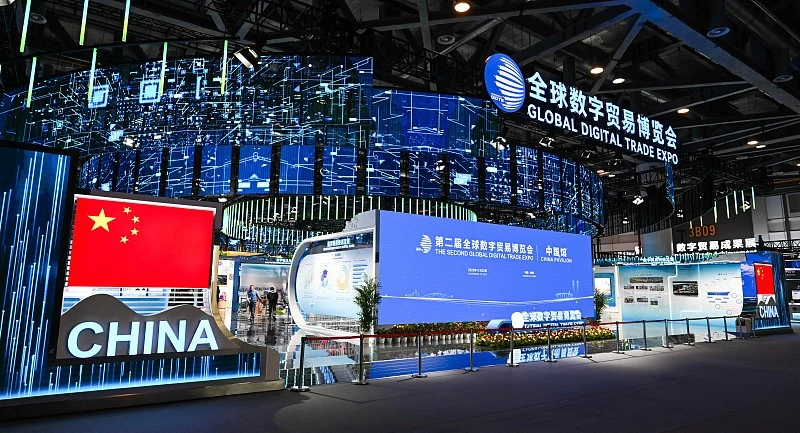China’s Digital Strategy and the Geopolitics of Technology
 China’s Digital Strategy and the Geopolitics of Technology
China’s Digital Strategy and the Geopolitics of TechnologyChina has started an ambitious digital plan in recent years that is not only changing its own scene but also redefining the boundaries of world digital governance. Beijing’s strategy is deliberate, long-term, assertively targeted at creating international standards in new technologies like artificial intelligence (AI), 5G, cloud computing, surveillance systems, data governance. Beyond mere technical leadership, the plan includes a concerted endeavour to affect the rules, conventions, and structures controlling the worldwide digital economy. Europe finds itself at a crossroads as China’s digital presence grows, with both hazards and possibilities. Knowing Beijing’s approach and developing a cogent European reaction becomes not just a geopolitical but also an economic need.
Policies such “Made in China 2025,” “China Standards 2035,” and the Belt and Road Initiative (BRI) “Digital Silk Road” component centre China’s digital grand plan. These initiatives seek to lower dependence on outside technology, boost home innovation, and transfer Chinese technological infrastructure all around. The 5G deployment by Huawei and ZTE, the spread of surveillance systems driven by artificial intelligence, and the increasing impact of Chinese tech behemoths like Alibaba and Tencent in global markets all point to a deliberate attempt to construct a Sinocentric digital order. Furthermore, China is trying to ingrain its technical tastes in the frameworks that will define the next generation of worldwide networks via active involvement in international standard-setting groups like the International Telecommunication Union (ITU).
China’s approach is based on a very different conception of digital governance at its core. China advocates a state-centric strategy that stresses national security, data sovereignty, and centralized control whereas liberal democracies typically stress openness, individual rights, and dispersed innovation. This difference affects not just ideology but also privacy, cybersecurity, market access, and political liberties directly. China is building digital ecosystems where Chinese companies and state logic predominate by exporting its technology and supporting governance standards—often packaged with tempting financial packages, especially in the Global South.
Europe is negotiating this changing landscape in meanwhile. On one side, the EU is trying to express its own vision of “digital sovereignty,” marked by ethical artificial intelligence, robust data protection standards (as embodied by the GDPR), and open but safe digital infrastructures. Conversely, Europe still depends technologically on American and Chinese companies in important industries such cloud computing, semiconductors, and telecoms. Lack of European champions in these crucial sectors reduces the continent’s power and increases its vulnerability to outside influences.
Europe has to use a multi-pronged approach that combines autonomy with involvement if it is to react properly. The EU must first greatly increase expenditure on important digital infrastructure and innovation hubs. Important milestones include initiatives like the European Chips Act and GAIA-X, but to attain scale they rely for consistent finance, political resolve, and cross-border cooperation. Europe should also concentrate on helping native IT businesses with access to funding, simplified market integration, and friendly laws.
Second, Europe should use its regulatory authority, often called the “Brussels Effect”, to establish worldwide standards for digital governance. Already a de facto worldwide benchmark for data protection, the GDPR might help artificial intelligence become so as well. The impending AI Act could accomplish likewise. Europe can provide a respectable alternative for both the laissez-faire American model and China’s totalitarian template by imposing high-quality norms anchored in democratic ideals.
Third, strategic alliances are vital. To create common standards, safe supply chains, and combat digital authoritarianism, Europe has to intensify cooperation with like-minded countries such the United States, Japan, South Korea, and India. In this sense, the EU-US Trade and Technology Council (TTC) offers a good forum; yet, its success will depend on specific results and mutual confidence. Europe could also interact with nations in the Global South providing open, moral substitutes for China’s Digital Silk Road. This covers not just money for infrastructure but also regulatory help and capacity development.
Fourth, Europe has to review her own digital fragmentation. Driven by different national laws, bureaucratic obstacles, and lack of interoperability, a unified digital market is more of an ideal than a reality. By harmonizing digital regulations across member states, Europe’s collective power will be more enhanced and a firmer basis for outside involvement will result.
Public knowledge and democratic responsibility should not be disregarded either at last. From elections to education, digital technologies are progressively influencing every element of life. Therefore, people need to be educated participants in the discussion about the future of Europe. Policymakers should make sure Europe’s digital transformation is inclusive, rights-based, open, thus resisting not just foreign influence but also home populist currents that can take advantage of technology fears.
Beijing’s digital approach poses a basic threat to the liberal international order as it stands now. It is about whose norms will define the digital era, not just about who develops the finest technology. By investing in its digital capabilities, claiming regulatory power, forming strategic partnerships, and strengthening internal cohesiveness, Europe can rise to this challenge. The digital battlefield is political, ethical, and civic as well as technological. Europe cannot afford to be a spectator in this new big game of bits and standards. It has to act forcefully to protect and promote its principles online.












